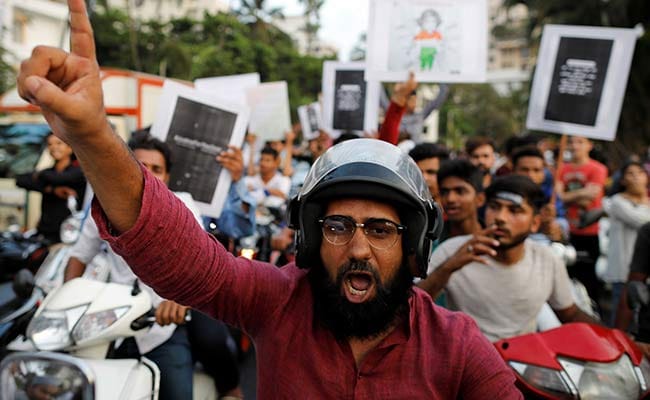
The Kathua gang-rape and murder led to demand for harsher punishment against convicts
New Delhi:
Bar Council of India Chairman Manan Mishra today said the ordinance to amend the Protection of Children from Sexual Offences Act (POCSO) was a step taken in hurry. He said the amendment should have been brought after proper discussions.
"Pros and cons should have been considered. Only then such amendments should be made," Mr Mishra said.
Amid nationwide grief and anger over the gang-rape and murder of an eight-year-old girl in Jammu and Kashmir's Kathua, there had been a move to change the law for sexual crimes against children to bring in the death penalty for child rape.
Union Minister Maneka Gandhi had declared it in a video message earlier this month, in which she said she was "deeply, deeply" disturbed by the Kathua rape case.
Maneka Gandhi had said her Women and Child Development Ministry would move a cabinet note to amend the POCSO Act. The union cabinet on April 21 approved the amendment in the POCSO Act, putting a stamp on awarding death penalty to rapists of children below 12 years.
A day later, President Ram Nath Kovind promulgated the ordinance to strengthen the law.
The centre had responded to the barrage of attacks over the government's inability to curb sexual crimes against girls with an executive order to introduce death penalty for child rapists, longer jail term for all rapists and set an ambitious four-month deadline to complete investigation and trial in all rape cases.
The changes, which will become law once cleared by the President, raises the minimum punishment for rape from seven years to 10 years, extendable to life imprisonment.
The minimum punishment for rape of a girl under 16 has been doubled to 20 years. Also, the judge has been given a free hand to order that the convict can never step out of jail for the rest of his life.
With inputs from ANI
"Pros and cons should have been considered. Only then such amendments should be made," Mr Mishra said.
Amid nationwide grief and anger over the gang-rape and murder of an eight-year-old girl in Jammu and Kashmir's Kathua, there had been a move to change the law for sexual crimes against children to bring in the death penalty for child rape.
Union Minister Maneka Gandhi had declared it in a video message earlier this month, in which she said she was "deeply, deeply" disturbed by the Kathua rape case.
Maneka Gandhi had said her Women and Child Development Ministry would move a cabinet note to amend the POCSO Act. The union cabinet on April 21 approved the amendment in the POCSO Act, putting a stamp on awarding death penalty to rapists of children below 12 years.
A day later, President Ram Nath Kovind promulgated the ordinance to strengthen the law.
The centre had responded to the barrage of attacks over the government's inability to curb sexual crimes against girls with an executive order to introduce death penalty for child rapists, longer jail term for all rapists and set an ambitious four-month deadline to complete investigation and trial in all rape cases.
The changes, which will become law once cleared by the President, raises the minimum punishment for rape from seven years to 10 years, extendable to life imprisonment.
The minimum punishment for rape of a girl under 16 has been doubled to 20 years. Also, the judge has been given a free hand to order that the convict can never step out of jail for the rest of his life.
With inputs from ANI
Track Latest News Live on NDTV.com and get news updates from India and around the world

